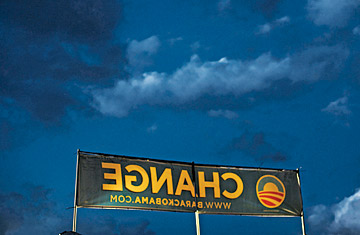
(4 of 5)
More information can make us healthier too, which is why the stimulus poured $1.1 billion into "comparative effectiveness" research. Orszag has reams of charts showing that medical tactics and costs vary wildly across the country, with little regard for what works. He'd like to document best practices — from emergency-room to-do lists that dramatically reduce infections to protocols for when pricey tests and surgeries really help — and then have all medical providers adopt them. This approach has helped American anesthesiologists reduce deaths as well as costs.
But information alone isn't enough. We all know we shouldn't smoke or pig out on fudge, but knowledge isn't as powerful as motivation; even Summers could stand to lose a few pounds. Old behavioralist joke: How many psychologists does it take to change a lightbulb? Answer: Just one, but the bulb really has to want to change. (See the top 10 scientific discoveries of 2008.)
It's Got to Be Easy
Econ 101 relies on prices to promote change, and it's true that $4 gas got us to drive less. But prices aren't everything.
Even when utilities will pay for efficiency upgrades that will save us money for years, we're unlikely to make retrofits — unless the utilities take care of the schlep factors, like finding contractors and inspecting the work. Cheap is alluring; easy can be irresistible.
This is why default options pack such power. Most of us will save for retirement, run our computers in energy-efficient mode and be organ donors if we have to take action to say no — but not if we have to take action to say yes. Almost nobody signed up for a German utility's clean-energy plan until it became the default, and then 94% stuck with it. We're also much likelier to go to the doctor for preventive care like flu shots if the appointment is made for us. In a speech last year, Orszag even suggested charging us for doctor's appointments unless we take action to cancel, though he conceded that might sound "a little crazy at first blush or even second blush."
More along these lines is heading our way. The Administration hopes to harness our inertia with its automatic pension plan, a major step toward universal savings accounts, and by dramatically simplifying applications for federal tuition aid. Its push to computerize health-care records — another big-ticket stimulus item — could make generic drugs and cost-effective procedures our default treatments. And seniors who don't select health-care or drug plans could be automatically enrolled in low-cost options. "It would be nice if we all behaved like supercomputers, but that's not how we are," Orszag says.
While Obama's economists search for pain-free, hassle-free solutions to our easy-way-out instincts, his rhetoric often aims to build our tolerance for pain and hassle. He urges us to snap out of denial, to accept that we're in for some prolonged discomfort but not to wallow in it, to focus on our values. That happens to sound a lot like "acceptance and commitment therapy," the latest advance in behavioral psychology. Instead of assisting smokers to ignore cravings and chronic-pain sufferers to think about other things — the old denial approach — acceptance therapy pushes patients to acknowledge negative thoughts and then overcome them by focusing on values. Even a small amount of this approach seems to help smokers quit, dieters lose weight and patients with diabetes or chronic pain stay out of the hospital. University of Nevada, Reno, psychologist Steven Hayes believes our Prozac culture has trained us to avoid all discomfort, leaving us reluctant to exercise or adjust our thermostats. "We're supposed to be happy-happy-joy-joy all the time," Hayes says. "Obama is trying to help us get past that."
But Obama is no therapist changing individuals one at a time. He's an organizer trying to build community and inspire collective action through house parties and Facebook as well as rhetoric about shared values. In other words, he's trying to create social norms — behavioral change's killer app.
